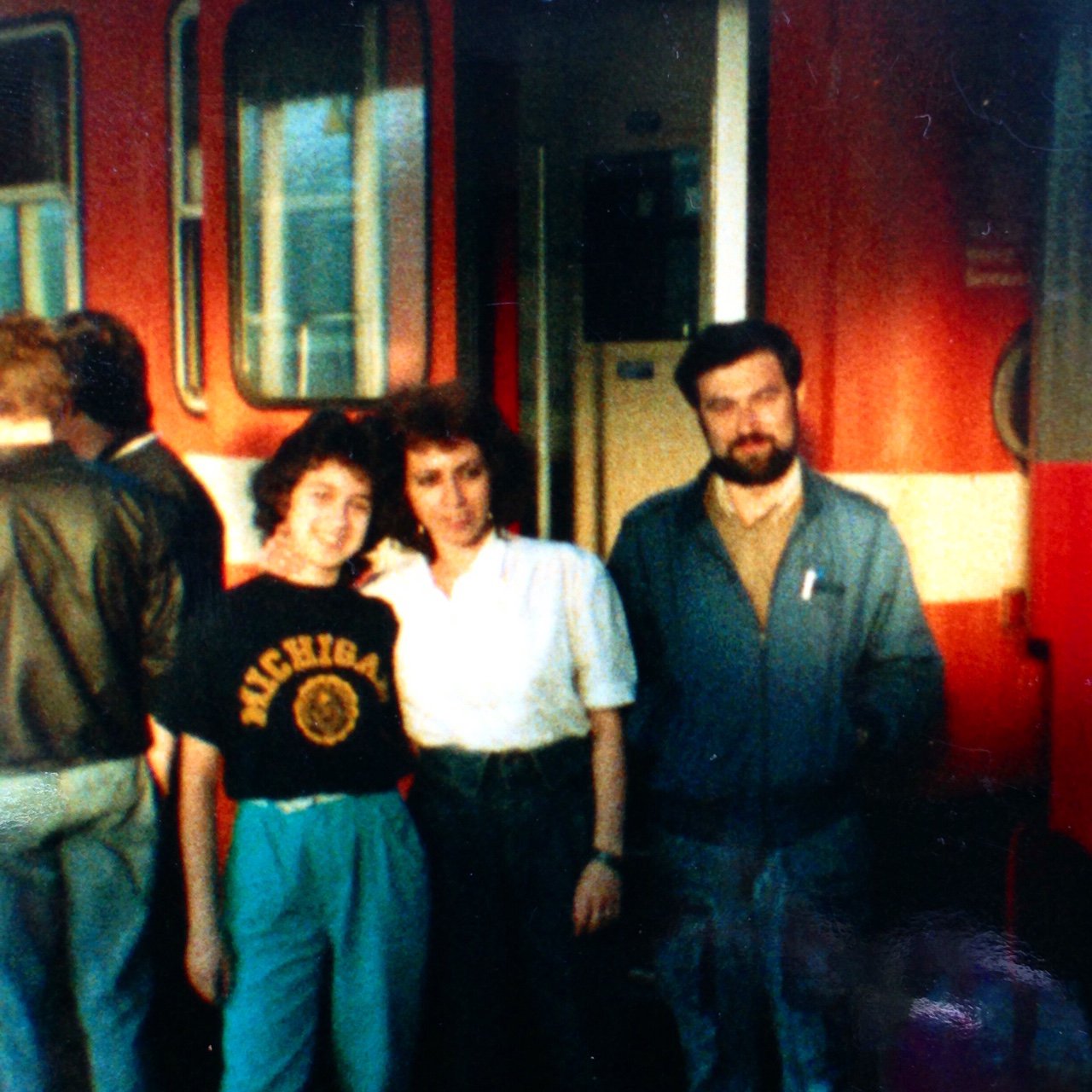

I heard a podcast the other day that literally made me stop in the middle of my walk so I could listen to it.
Because it was really shocking and completely intuitive at the same time.
The podcast is called Invisibilia and this particular episode was titled "The Problem With the Solution." In it, the hosts explored mental illness, and specifically, what conditions helped mentally ill people live higher quality lives.
One story they told was about Geel, a small town in Belgium that has a tradition of families taking in mentally ill people to live with them. It's something the town community has done for centuries and families there consider it a normal part of life.
While an amazing fact on its own, that's not what surprised me.
The hosts shared several stories of mentally ill patients who were able to live their lives in relative comfort, as members of their adoptive families. One of these families was interviewed for the episode and shared that they had a son of their own who suffered from mental illness.
But while he tried, he could not live at home with his family.
He ended up moving away to live on his own, even though they both loved him very much. And even though for decades they were able to take care of other people with mental issues, people they brought into their homes.
As his mom talked, you could literally feel the love in her voice, along with a deep sadness that while she and her husband were able to help other mentally ill people, they could not make living at home work for their son.
The podcast episode continued with other stories of people with mental illness being able to function better in communities with strangers vs. their own families.
In so many cases, the same intense love that the families felt for their mentally ill family members and the same intense desire they had for them to get better were actually the very factors that seemed to make it difficult for those people to get better. Or to feel OK living with their family.
They felt pressured.
They felt like they weren't doing the right thing.
They felt like their families couldn't accept them just the way they were.
And we can't get better if first we can't feel that it's OK how we are.
We can't get better if we first don't feel that it's OK to not be better right away.
When families who didn't know these people took them in, they accepted them and their condition as given. Of course they cared for them, but they didn't try to change them.
They created a safe space for them to just be.
I found this podcast fascinating and it reached deep inside my heart. It touched on such truths, such deeply life-important revelations that go beyond just mental illness and into every part of what it means to be human.
Before we can do much else, we need to feel psychologically and physically safe where we are. We need to feel like we are OK how we are. Whether you look at Maslow's Hierarchy of Needs or read the teachings of ancient Vedas, the message is the same:
Feeling accepted is one of our core human needs.
For me, this podcast and these ideas quickly led to thinking about one of the most important roles I have: being a parent to our 12 year-old daughter.
As I listened, I started remembering the many times when I wished something for her -- from being more organized so she could have smoother days to trying public speaking at a camp a few years back. All the things I've wished and wanted for her have come from deep love and from my heartfelt desire for her to live a full, bright life.
But was my love for her making these desires feel like pressure? Was I making her feel like she was not OK just how she was -- not very organized, not so much into public performances? Was my intense love for her preventing her from exploring and trying things that I wished for her to explore and try?
These aren't easy thoughts to have as a mom.
And I don't have great answers to these questions. But I am trying to be a lot more diligent about ways that I express my "wishes" for my daughter and about letting her know that while there are always ways we can improve ourselves, she is amazing, just the way she is, right now.
"You're a being, not a doing," I told her once, a few months ago.
We'd gotten into an argument after she behaved irresponsibly and it was a tense evening, with tears. I was tucking her in for the night when I kissed her and whispered those words into her ear. (I have to credit my spiritual teacher for saying them to me at a moment when it meant a lot to hear them.)
"You may do stuff that's not great, you will make mistakes, but those are things you do, not what you are. I may not like them, I may get angry, but I always love you, your being, your you," I told her.
A few weeks later she forgot to do something important she promised me. I made a stern face and then went to say something to her. She interrupted me, half breath:
"I know, I know. You're upset with what I did, but you love me anyway. I'm a being, not a doing. And I'll try better, I promise."
I was the one swallowing my tears this time.
You're a being. Not a doing.
You can always do better. We all can.
But you're amazing, just the way you are, right now.
Yes, you.
If you liked this article, subscribe to our newsletter. It's like a smile in your inbox. And no spam, that's a promise.
Don't miss your happier boost!
Subscribe to our weekly email to get practical tips and inspiration to help you feel more joyful and resilient.


